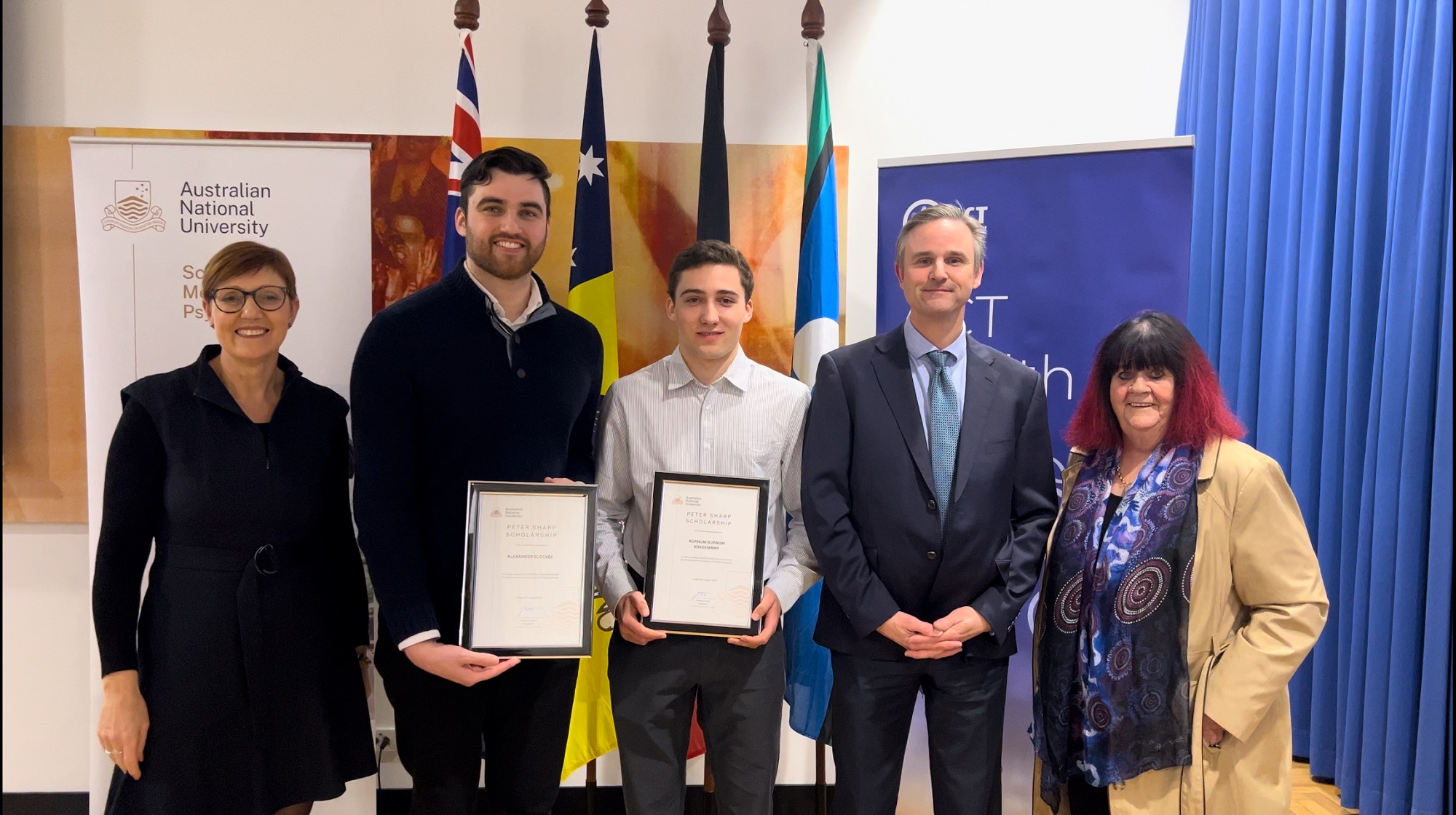
Time to Give Back
Mr Burnum Brademann didn’t know exactly what he wanted to do when he left school but the idea of a role in healthcare was on his mind.
Growing up, Mr Brademann watched his mother undertake studies to become a dentist, something he found fascinating as a child.
Before committing to medicine he spent a year working as a carer in an aged-care facility in his hometown of Cooma. That experience sealed the deal.
Having commenced his first year of medicine at the Australian National University, Mr Brademann was recently awarded the Peter Sharp Scholarship to support him during his studies.
“Working in the aged-care facility reinforced that being of service and giving to community is very important to me.”
“Coming from a small town you regularly see people wearing multiple hats. My soccer coach was also my local doctor.”
“I know, firsthand the impact you can have in a small community, and it’s quite great. It is one of the reasons I would consider returning to work in a rural or regional area once I’ve graduated.”
“The financial support provided through the Peter Sharp Scholarship has meant I don’t need to engage in a part-time job and as a result I have the time and opportunity to focus on causes that are important to me and the wider community.”
“I’ve joined the ANU Rural Medical Society and was recently involved in organising the Indigenous Health Conference where we brought together experts who could discuss topics such as advocacy, policy and clinical care for Indigenous communities.”
Mr Alexander Slockee, a fellow medical student, now in his second year of the Doctor of Medicine and Surgery program is also a recipient of the Peter Sharp Scholarship.
“When I finished school I was hoping to become a pilot in the air force but was told I was too young to apply.”
“While waiting, I decided to complete my undergraduate degree in psychology. Little did I know how much I’d enjoy it.”
“In the process of studying, I decided a career in health would suit me and so I’ve followed in my dad’s footsteps and am undertaking medicine.”
“My dad started his career as a general practitioner. As I child I was aware that he worked very, very long hours.”
“At the time, my thought was that he worked too hard. As an adult he explained to me that he had a job that he loved and as result he never worked a day in his life, and that is what medicine is starting to look like to me,” Mr Slockee said.
“For me, the idea of medicine is about helping people and giving back to the community.”
“My ancestry is Aboriginal. My grandfather is a Bunjalung man. Although my experience with my own ancestorial culture is limited because our family moved away from country, I do feel a connection and want to give back in some way.”
“I am focussed on Indigenous health as part of my study and am looking forward to undertaking clinical placements in the Northern Territory and working with Indigenous communities,” Mr Slockee said.
“I do often think about which area of medicine could have the most impact for Indigenous communities – would being a rural GP or being a specialist that can help with specific issues that affect particular communities be most beneficial.”
“It’s really wonderful to have received the Peter Sharp Scholarship. I know that Dr Sharp was an advocate and huge contributor to Indigenous health and the community and I hope to be able to give back to community in my own way in future.”
Mr Brademann and Mr Slockee were acknowledged as recipients of the Peter Sharp Scholarship at a recent event held in Canberra.
The Minister for Health, Rachel Stephen-Smith attended the event to award the recipients, with funding for this scholarship provided by the ACT Government.
“This scholarship is one way we can ensure Aboriginal and Torres Strait Islander people are better represented and supported in our healthcare workforce.”
“Providing more support to students in medical professions will better equip our future health workforce to provide quality health care for our whole community,” Minister Stephen-Smith said.
